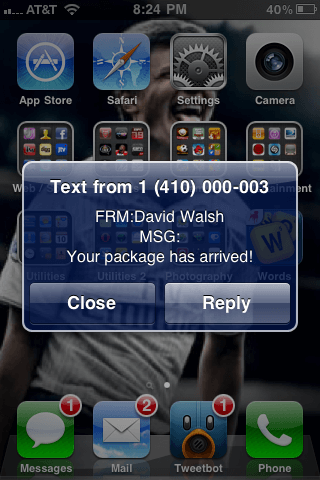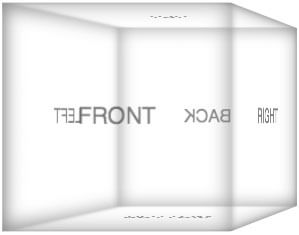April Fools! Change Your PHP Pages to ASP…Or Not
I don't know a lot of PHP developers that think very much of ASP. This, of course, sets the stage for a great April fools trick: we're going to change all of the links on our website from ".php" to ".asp" and see how many coworkers we can confuse the hell out of. Granted, most developers with a just few years of experience would figure out the method within a few minutes, but you can probably get the noob with this one.
Step One - Change the Links
<!-- FROM -->
<a href="/some-page.php">Click here</a>
<!-- TO -->
<a href="/some-page.asp">Click here</a>
Step Two - The .htaccess Code
AddType application/x-httpd-php .asp
Have fun and trick some people today!
![Send Text Messages with PHP]()
Kids these days, I tell ya. All they care about is the technology. The video games. The bottled water. Oh, and the texting, always the texting. Back in my day, all we had was...OK, I had all of these things too. But I still don't get...
![Create a CSS Cube]()
CSS cubes really showcase what CSS has become over the years, evolving from simple color and dimension directives to a language capable of creating deep, creative visuals. Add animation and you've got something really neat. Unfortunately each CSS cube tutorial I've read is a bit...
![Create a Sheen Logo Effect with CSS]()
I was inspired when I first saw Addy Osmani's original ShineTime blog post. The hover sheen effect is simple but awesome. When I started my blog redesign, I really wanted to use a sheen effect with my logo. Using two HTML elements and...
![HTML5 Placeholder Styling with CSS]()
Last week I showed you how you could style selected text with CSS. I've searched for more interesting CSS style properties and found another: INPUT placeholder styling. Let me show you how to style placeholder text within INPUTelements with some unique CSS code.
The CSS
Firefox...




